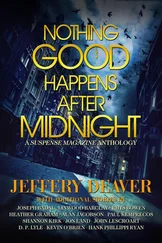“Not yet, Kevin.”
Duggin slouched back in what appeared to be quite a luxurious black leather chair and sipped from a mug. “I think it oughta be fucking gavel time,” he muttered.
The Twins unmuted. “Eighty.”
Duggin: “Eight five.”
“Crap,” Steven spat out. “You don’t even know what the fuck to do with a truck like that.”
“Now, gentlemen, pretend we’re at Christie’s. A little civility.”
The brothers looked at each other once again. They shook their heads simultaneously.
Buryak was disappointed. He’d thought this lot would do better.
“Going once...”
Welbourne took a slip of paper from a hand that ended in red polished nails. He read it.
“Going twice.”
Welbourne looked into the camera. “One hundred ten thousand.”
Yes!
Duggin grimaced, and the twins exchanged perplexed glances. All three remained grudgingly silent.
“Sold!” Buryak slapped his desktop in lieu of a gavel.
“I’ll wire the money now,” Welbourne said in his quiet, unemotional voice.
“It will take about a week to ten days for prep.”
“All right.”
“Now, let’s move on to lot two.” A picture of a twenty-foot cabin cruiser on a trailer appeared. It was old, the paint job uneven, missing some windows.
“This is what is called a fixer-upper, but well worth the investment. Let me give you the details.”
Shortsighted, foolish...
Lincoln Rhyme was staring at the triptych of evidence boards.
In the corner was the Alekos Gregorios killing. Behind it, the Viktor Buryak — Leon Murphy case.
Which was, of course, not a case any longer at all.
Front and center was the Locksmith. It contained scores of notations, which Sachs would photograph and transcribe onto a similar board in the crime scene main facility in Queens — now that the case had been stolen away.
Rhyme knew he probably wasn’t the best criminalist in the world. Out there somewhere — France, Botswana, Singapore, Brazil, the U.A.E., or, likely, in the borough of Queens, at the main NYPD lab — there was a man or woman with forensic skills that outshone his. But one thing was undeniable. Rhyme knew the city of New York as well as he knew this town house. And it was that knowledge base, combined with his natural talents for chemistry, physics and deduction, that made him unique.
Was some of this assessment ego?
Yes, of course. But ego and skill do not, by any means, exist in opposition. A good argument could be made that they have a correlated, and possibly causal, relationship.
“Here.”
He looked up. Thom handed him a glass. Inside was amber-colored liquor. He smelled peat... but not too much. One of his favorite Glenmorangies, and a double pour. His aide, who’d been fired as often as he’d quit yet was still here, could read moods.
He sipped. It helped some, but Lincoln Rhyme’s fiercest genre of anger was reserved for stupidity, even more so than corruption and deceit.
And with this sociopath roaming the streets of the city for reasons unknown, it was reckless in the extreme to sideline him.
He and Thom were alone in the town house. Cooper had packed up the evidence and had taken it to Queens. Amelia Sachs was at Major Cases. She’d gone down there to hand deliver a particular missive to Lon Sellitto.
His phone hummed and not the sound but his glance at the caller ID made his heart stir.
“Lon. Tell me.”
The pause delivered the answer.
“Sorry, Linc. They’re not budging. I got all the way to the commissioner.”
Rhyme had figured this would be the answer. In fact, he nearly smiled at the image of the rotund, rumpled detective lieutenant insisting his way into the commissioner’s office and pleading the case for Lincoln Rhyme’s reinstatement. Sellitto would have wanted to mutter, “Are you out of your fucking mind?” But, of course, he would have brought all the negotiating skills of a seasoned homicide detective to the game.
“I found something else. You heard about this blogger? Verum?”
“No.”
“Crank conspiracy guy. Posts online, these videos about politics, society, all kinds of bullshit. Lies, but people eat them up. He’s got thousands of followers online.”
“‘Verum’? Latin for ‘true.’ Except what he says isn’t.”
“You got it. Looks like he’s in California, maybe L.A., but he’s been posting about New York. There’s this conspiracy he calls the Hidden. Some movement trying to destroy American institutions. He said that’s why Buryak got off. The trial was thrown.”
“I’m part of a secret state, hm? I missed the thank-you cards from Buryak for doing my part to set him free.”
“And then he’s saying that the police aren’t doing enough to stop the Locksmith because they’re part of it too. City Hall.”
Ah, he got it now. Rhyme barked a sour laugh. “It’s not the brass, is it, Lon? The ban-the-consultants didn’t come from the brass; it was the mayor. He wanted me out because of the election. I’m a fall guy.”
Rhyme knew next to nothing about politics — it didn’t affect his universe of forensic science — but he did know a special election for governor was coming up soon, and Mayor Harrison — a Bronx-born lifelong shirtsleeve politician — was going head-to-head with billionaire businessman Edward Roland, who lived in a posh portion of Westchester County.
“Looks like it.” Sellitto scoffed.
So, Rhyme found himself a pawn in a political contest, a role he didn’t think he’d ever played before.
“Listen, Lon, you seen Amelia yet?”
“She dropped it off.” His voice was low.
“You take credit. Don’t tell anybody it came from me.”
“Fuck, Linc. I take credit all the time for shit you come up with.”
“Night, Lon.”
The call was disconnected.
He was staring at the Locksmith whiteboard when his computer dinged with the sound of an incoming email. It was a Zoom invitation from a man he hadn’t spoken to in some time. NYPD Commanding Officer Brett Evans — the same rank as somber Rodriguez, of the handlebar affectation.
Rhyme took another sip of scotch and, manually this time, clicked on the link.
Soon he was looking at a man in his mid-fifties. Evans was the epitome of police brass. He had a lined, lean face, broad shoulders and hair going gray. His eyes were forever calm. This was a chest-up-only angle but Rhyme remembered him as having slim legs. “Dapper” was the word that came to mind.
“Lincoln, sorry to bother you at night.”
“No worries, Brett.” Rhyme rarely littered conversations with pleasantries like “doing well?” or “what’s happening?” and he didn’t now. He waited.
“I heard what happened, Lincoln. Jesus.” His face was troubled.
Rhyme couldn’t help but chuckle. “Aren’t you afraid of getting busted, Brett, talking to me? Obstruction of justice, conspiracy... treason ?”
“You always did have a sense of humor. Anyway, Lincoln, as soon as I heard I called Sally Willis. I put in a word for you. Nobody’s changing their mind.”
Evans had worked his way up from patrol to gold shield and beyond. Commanding officers, or “commanders,” perched in the loftiest aeries of NYPD hierarchy.
But their power did not trump City Hall’s.
“No, it’s set in stone. Nothing to do. You can’t appeal a business decision.”
Evans mused, “The O’Neil case? Hell’s Kitchen?”
“Remember it, sure.”
Rhyme — yes, as a consultant — had handled forensics at a scene detective third grade Evans had run near the West Side piers. In walking the grid at a warehouse, long abandoned by the ruthless Eddie O’Neil, Sachs had discovered an unusual feather. After several days of analysis and research — and eyes-closed pondering, Rhyme was able to trace it to a neighborhood pet store, where O’Neil, they learned, bought his illegally imported birds. The owner of the store — after some horse-trading (Rhyme liked the animal motif) — agreed to be a confidential informant against the mobster. O’Neil got collared minutes before a shootout with rivals that could have led to the deaths of dozens of innocent pedestrians and drivers on Ninth Avenue.
Читать дальше
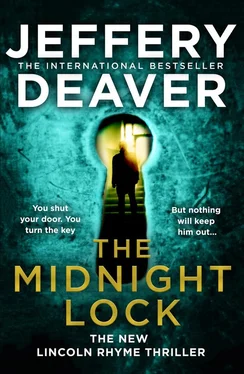
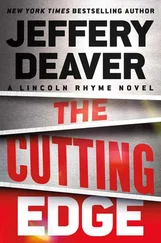

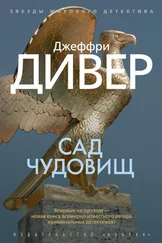
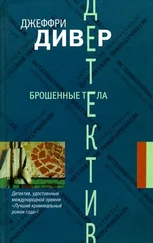

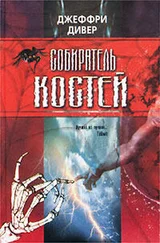
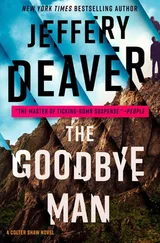
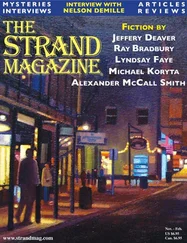
![Джеффри Дивер - Where the Evidence Lies [A Lincoln Rhyme Short Story]](/books/403782/dzheffri-diver-where-the-evidence-lies-a-lincoln-r-thumb.webp)


